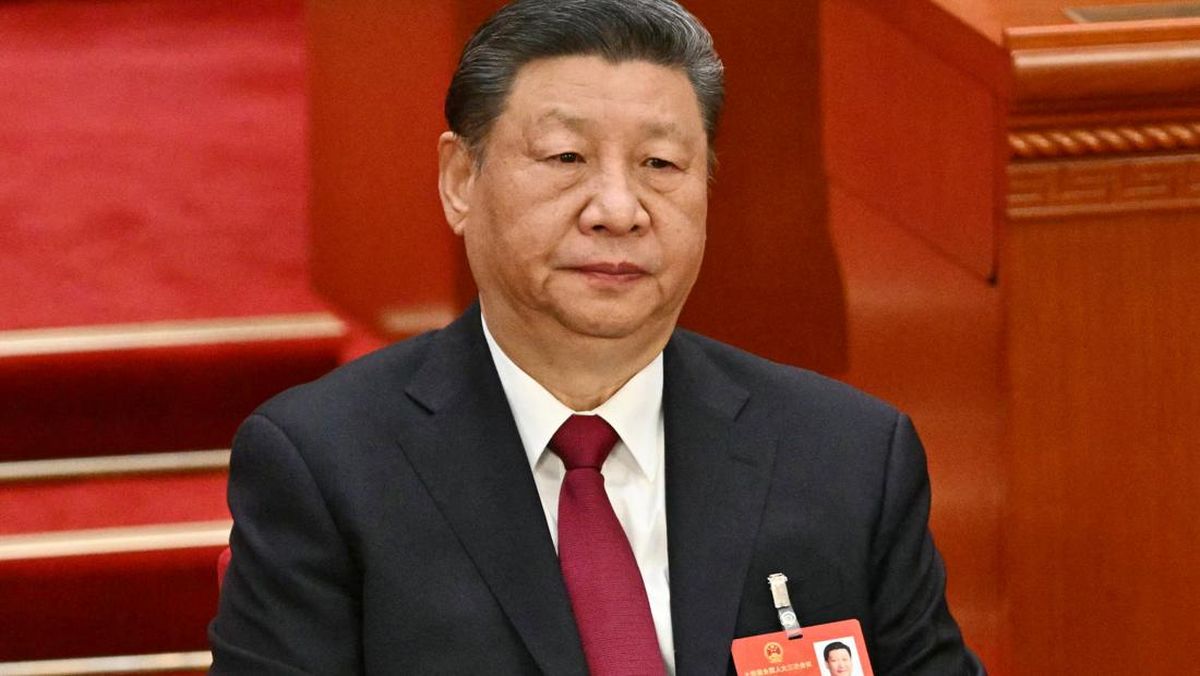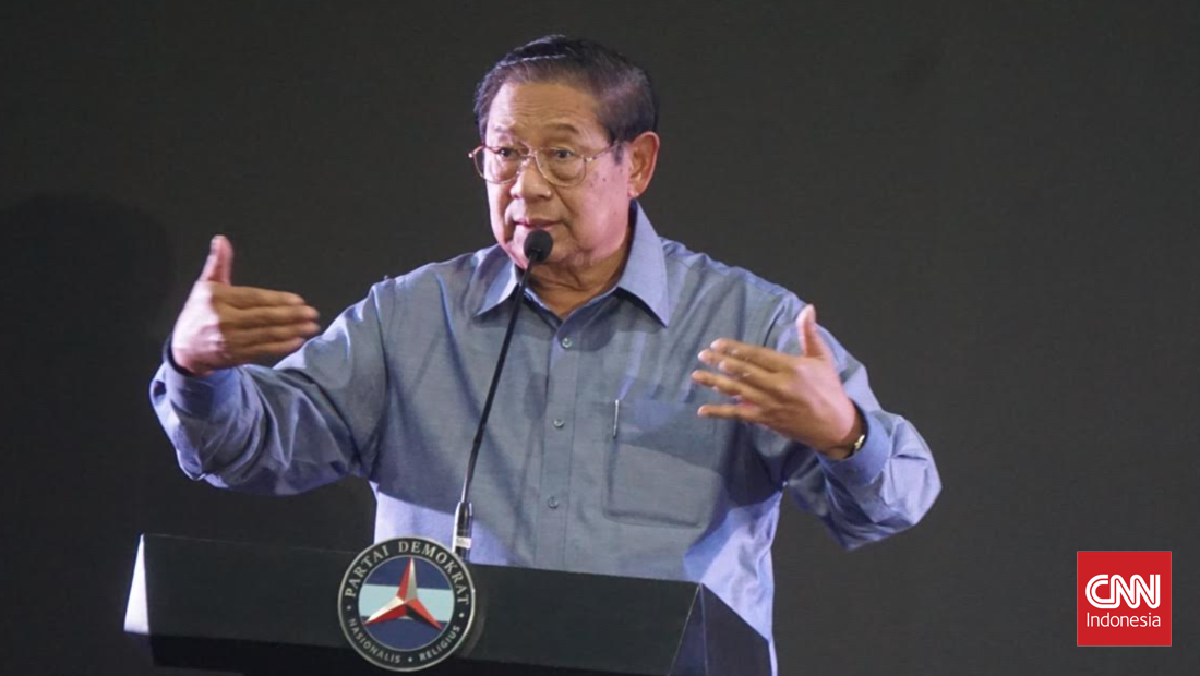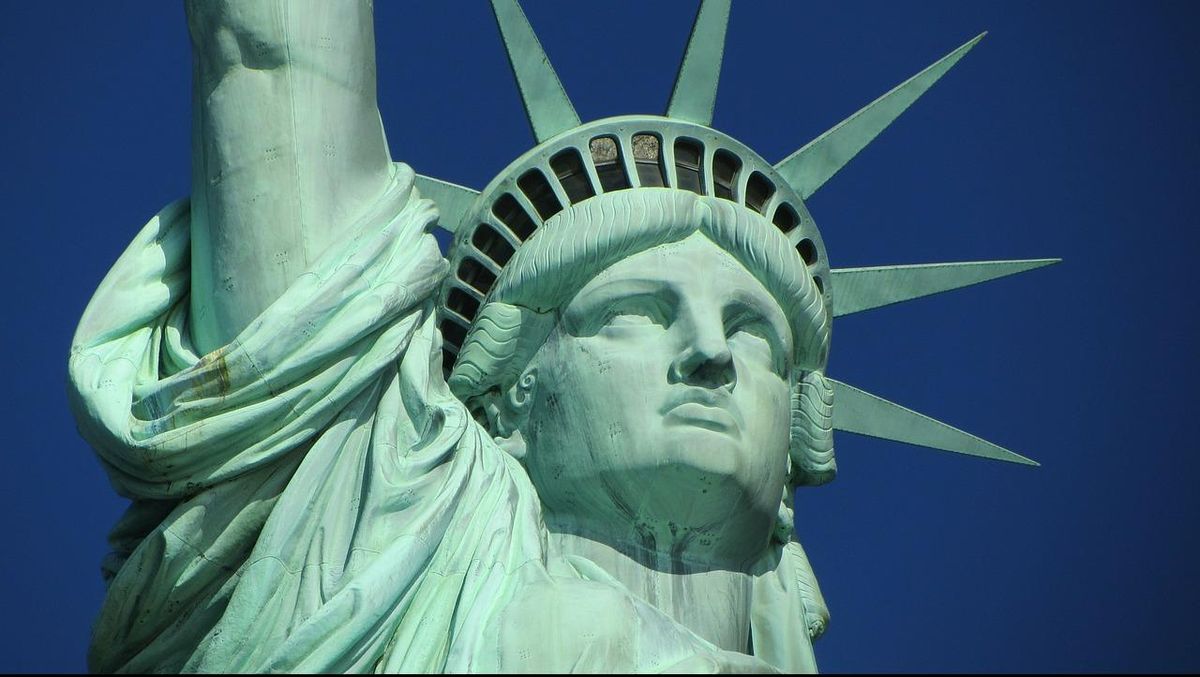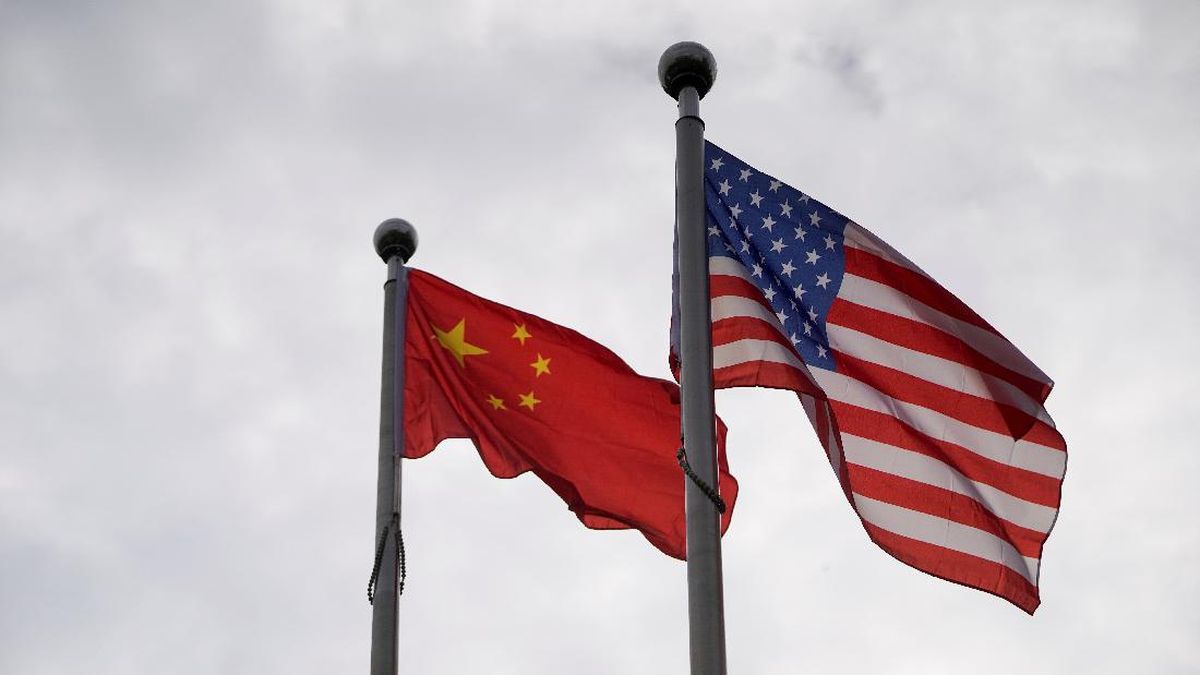
Sunrise turns the sky orange behind the U.S. Capitol building as it illuminates the U.S. flags circling the base of the Washington Monument on March 23 in Washington, D.C. J. David Ake/Getty Images hide caption
toggle caption
J. David Ake/Getty Images
BEIJING — From slapping tariffs on America's friends and foes alike, to the dismantling of foreign aid and retreat from international institutions, the Trump administration's actions have been criticized for creating a global leadership vacuum that will be filled by U.S rivals, especially China.
But speaking to some of China's America watchers, views of any opportunities that the new administration might offer are tempered by caution and skepticism about China's appetite to eat America's lunch.
In some ways, China's ambivalence about taking on greater global responsibilities mirrors Americans' wariness and weariness with foreign adventures, against the background of domestic political and economic woes.
Regardless of how Chinese observers think China should respond to any perceived openings or opportunities, the changes in the U.S. resonate on a personal level with America watchers, many of whom have lived and been educated in the U.S.
Is America a "beacon" or a "roulette"?
Journalist and author Zha Jianying, for example, studied at the University of South Carolina and Columbia University in the early 1980s, when Beijing began allowing students to study in America.
Zha is one of China's liberals, who used to "look up to America as a role model to help change China in the more democratic direction." Recent developments in America under the Trump administration, she says, "have been really shocking and bewildering and in some sense disillusioning."

Zha Jianying, a famous Chinese writer, poses for a photo at her home in Beijing in July 2015. Simon Song/South China Morning Post via Getty Images hide caption
toggle caption
Simon Song/South China Morning Post via Getty Images
But for the Chinese state, she says, "it's definitely an opportunity, because what's happening in the U.S. does a better job than state propaganda could do to demonize America as, you know, a phony democracy, which really is an imperialist power."
By contrast, Wang Haolan, who was born in 1997, is one of many Chinese who have never seen the U.S. as a beacon. "I have never believed the U.S. was that great," he says. The name of his popular podcast, The American Roulette, hints at this view.
Unlike older Chinese, Wang did not live through the economic hardships and political campaigns under the rule of Chairman Mao Tse-tung. Wang came of age during China's reform era, when the country was relatively open, and the economy grew rapidly.
Wang, who researches China at the Asia Society Policy Institute in New York, believes that there's no need for China to be in a hurry when things in the U.S. are going its way.
"As Napoleon famously said, when your enemy is making a mistake, don't do anything to disturb him," he says. "So I think China's strategy will be more of a tranquil waiting."
Will there be a deal?
China faces an early test of how to deal with the U.S., as President Trump imposes tariffs in a bid to lower the U.S. trade deficit with China.
"I'll be speaking to President Xi. I have a great relationship with him. We're going to have a very good relationship, but we have a trillion-dollar deficit because of Biden," Trump told reporters in the Oval Office on March 21.
(The total U.S. trade deficit with China last year was in fact $263 billion, according to the Commerce Department.)
Peking University international relations expert Wang Dong, who got his Ph.D. in political science from UCLA, argues that Trump's playbook includes using tariffs to pressure countries into making deals, and if that doesn't work, he raises the stakes.
"I do think there's a window of opportunity for both sides to really strike a deal, which is I think three to six months," in Trump's second term. If that window of opportunity is gone, then Trump might be tempted to revert back to his more confrontational approach."
That approach, he adds, could mean using Taiwan or other issues for leverage against China, which could increase the likelihood of conflict.
But Wang also notes that China wants to lower its trade surplus with the U.S., as it seeks to shift its engines of economic growth away from investment, manufacturing and exporting, and toward services and consumption. So there may be an "overlap of interests," and, Wang says, a potential "opportunity that China-U.S. relations might get improved during Trump's second term."

A news report of Xi Jinping, China's president, at the National People's Congress is displayed on a screen in Beijing on March 5. China set a forceful economic growth goal at about 5% for 2025, raising expectations for officials to unleash more stimulus later this year as they confront a trade war with Donald Trump. Na Bian/Bloomberg via Getty Images hide caption
toggle caption
Na Bian/Bloomberg via Getty Images
A history of caution
Xie Tao, dean of the School of International Relations and Diplomacy at Beijing Foreign Studies University, who received his Ph.D. from Northwestern University in 2007, also sees an opening for China.
"Look at the dismantling of the USAID and many other foreign aid projects," he says. "It does appear to present an unprecedented opportunity for China to present its own alternative version of a just world."
Xie adds that if there is an expectation for China to play a more active role in world affairs, Chinese leadership would not say no. But he also believes that China would avoid direct confrontation with the U.S. and avoid claims to leadership in every aspect of international affairs.
This means, he says, "that you behave very cautiously on the international arena. You don't want to overstretch yourself. You don't want to make promises that you cannot fulfill."
People's University professor of international relations Shi Yinhong, who has been a visiting scholar at four American universities since the 1980s, is even more skeptical of any opportunity.
He believes Trump is unlikely to succeed in striking grand bargains, judging from his failure to reach deals with, for example, North Korean leader Kim Jong Un in 2018 and 2019.

During his first term, President Trump met with North Korean leader Kim Jong Un. Evan Vucci/AP hide caption
toggle caption
Evan Vucci/AP

During his first term, President Trump met with North Korean leader Kim Jong Un.
Evan Vucci/AP
The U.S. and China also signed a deal in January 2020 to lower China's trade surplus with the U.S., but it quickly fell apart, suggesting, Shi says, that China will be skeptical of any attempt by Trump to strike another such deal.
Therefore, Shi anticipates that as Trump "has repeatedly stated, he will exert maximum pressure on China."
Limited resources, abundant distractions
Shi argues that what may look like opportunities for China are likely just distractions, and with its economic growth slowing, China has neither the money nor the domestic popular support to try to fill leadership roles vacated by the U.S., especially far from home.
"China must more strictly distinguish which of its foreign interests are truly core, and which ones can be reduced or even eliminated," he says. "We must reduce China's burden and focus China's strength on issues that are truly important to China."
He adds that China should try to avoid a major conflict with the U.S. and its allies. But it should push back where necessary and maintain the initiative, rather than always reacting to Washington's actions and rhetoric.

 1 month ago
29
1 month ago
29

















































